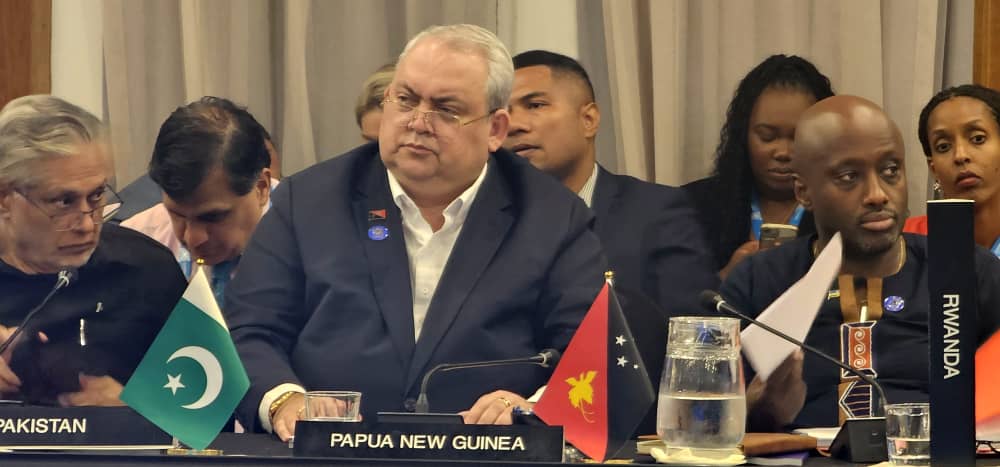Papua New Guinea (PNG) will explore independent solutions to address climate change and protect its people, no longer waiting for unfulfilled promises from the global community.
Foreign Affairs Minister Justin Tkatchenko announced this after attending the Commonwealth Ministerial Meeting on Small States (CMMSS) in Samoa, stating that if necessary, PNG will cut down its forests to sustain its economy.
“If we must cut down our forests to sustain ourselves and develop our economy, so be it. We are taking control of our destiny,” said Tkatchenko.
PNG, along with other small island nations, has grown frustrated with the lack of meaningful support from larger countries.
Despite contributing very little to global emissions, these nations suffer the most from climate impacts like rising sea levels, floods, and droughts.
Minister Tkatchenko stressed that Papua New Guinea is one of the third (3rd) biggest rain forest nations of the world, serving as the major lungs of the world that cleans the carbon dioxide that major greenhouse gas emitters (countries) produce, thus is an integral global lifeline in saving the world and the planet from disaster.
Minister Tkatchenko called out the hypocrisy of major polluters who have failed to provide the crucial funds needed to help smaller nations.
“The pledges made by major polluters amount to nothing more than empty talk. They impose impossible barriers for us to access the crucial funds we need to protect our people,” he said.
As a result, PNG has decided to boycott the upcoming COP29 climate summit in protest.
In explaining PNG’s withdrawal from COP29, the Minister was unequivocal: “We need action, not more talk.”
“The last three COP meetings have gone around in circles, producing no tangible results for small island states. COP29 will be no different, so PNG will not participate at the political level recognising the lack of respect for forest nations in the big carbon sink until some progress becomes evident to address the plight of PNG and other small states.”
Minister Tkatchenko emphasized that this decision reflects the struggles faced by all small island nations, many of whom have seen little action from years of high-level climate discussions.
“The international community has shown a total lack of respect for countries like ours that play a crucial role in mitigating climate change.”
“We are tired of being sidelined,” Tkatchenko stated.
PNG’s absence from COP29 sends a clear message that forest nations and small island states deserve more than lip service—they need real, tangible action to address the climate crisis.

